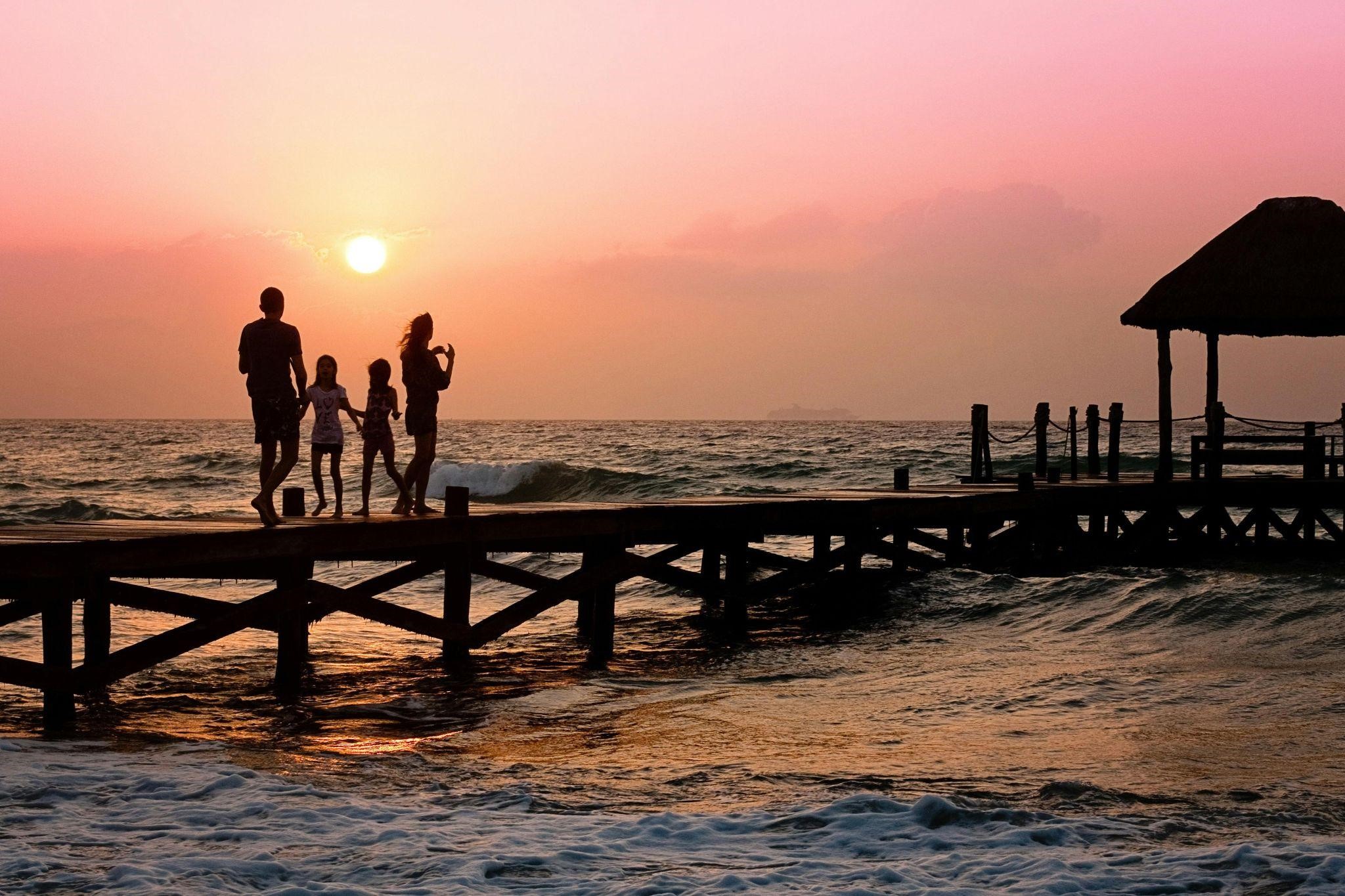“The traveller sees what he sees, the tourist sees what he has come to see.”
Gilbert K. Chesterton
The world is a vast, dazzling tapestry of cultures, landscapes, and experiences. Tourism, in all its diverse forms, allows us to explore this breathtaking canvas, leaving footprints of discovery and wonder wherever we go. But with so many choices, where do you begin? To help you plan your next adventure, let’s delve into 7 Tourism Types that cater to every traveller’s wanderlust.
Cultural Tourism
There are many Tourism Types, like Adventure and Cultural Tourism, offering different travel experiences.
Imagine yourself wandering through the vibrant souks of Marrakech, the intricate mosaics of Byzantine churches in Ravenna, or sipping tea with nomadic herders in Mongolia. Cultural tourism takes you beyond tourist hotspots, immersing you in diverse communities’ history, traditions, and customs. From attending traditional festivals to learning local crafts, experiencing a new culture fosters understanding, appreciation, and lasting memories.
Destinations like Kyoto, where ancient temples coexist with neon-lit skyscrapers, showcase the dynamic evolution of traditions. In Cambodia, exploring Angkor Wat is not just marvelling at architectural feats; it’s into the rich Khmer mythology and history etched in every intricately carved stone. Cultural tourism also plays a crucial role in preserving heritage. By supporting local artisans, attending traditional performances, and choosing responsible tour operators, travellers can become stewards of a culture’s legacy, ensuring it continues to enchant future generations.
Adventure Tourism
For those who crave adrenaline and breathtaking landscapes, adventure tourism beckons. Hike through lush rainforests in Borneo, kayak through the turquoise waters of the Greek islands, or scale the majestic peaks of the Himalayas. Adventure tourism isn’t just about pushing your physical limits; it’s about conquering fears, forging connections with nature, and experiencing the world through a lens of exhilaration. Responsible tourism practices are crucial in minimising environmental impact and respecting local communities while enjoying these adventures and having a great time.
Exploring tourism options allows you to discover various types of tourism, such as ecotourism or wellness tourism.
From exploring the untouched wilderness of Patagonia to learning sustainable farming practices in rural Thailand, ecotourism destinations like Borneo’s orangutan sanctuaries and the Galápagos Islands showcase the breathtaking beauty of our planet while educating travellers about its fragility. More importantly, ecotourism benefits local communities. By choosing eco-friendly accommodations, supporting local businesses, and participating in conservation initiatives, travellers can directly contribute to sustainable development and empower local communities to become stewards of their natural heritage.
Ecotourism– The Treasures of Nature
Ecotourism goes beyond sightseeing; it’s about actively participating in conserving natural wonders. Imagine volunteering at a wildlife sanctuary in Costa Rica, exploring the coral reefs of the Great Barrier Reef with a marine biologist, or hiking through the untouched wilderness of Patagonia. Ecotourism enriches your travel experience, benefits local communities, protects ecosystems, and fosters a sense of environmental responsibility.
Wellness Tourism– Nurturing Body, Mind, and Spirit
Wellness tourism offers a much-needed retreat. Whether meditating in the serene mountains of Bhutan, attending a mindfulness retreat in Bali, or enjoying ayurvedic spa treatments in Kerala, India, wellness tourism prioritises your physical and mental well-being. From yoga and massage to detox programs and nature walks, this type of tourism helps you reconnect with yourself and return home feeling revitalised and balanced.
From meditation retreats in Thailand to mindful walks in New Zealand’s breathtaking landscapes, wellness experiences cater to diverse needs. Detox programs in Portugal help cleanse the body, while art therapy workshops in Mexico unleash creative expression. As you explore these rejuvenating journeys, you return home feeling revitalised, balanced, and equipped to face the challenges of everyday life with renewed clarity and inner peace.
Culinary Tourism– Savoring the World on a Plate
For those who believe food is a gateway to culture, culinary tourism promises a feast for the senses. Savour the rich flavours of traditional Italian pasta in Tuscany, indulge in the aromatic spices of Marrakech street food or learn the art of sushi-making in Tokyo. Culinary tourism isn’t just about devouring delicious dishes; it’s about learning about local ingredients, cooking techniques, and the stories behind each dish. It’s a journey through gastronomic traditions that connects you to the heart of a place.
Destinations like Lyon, France, a UNESCO World City of Gastronomy, offer gourmet experiences alongside a cosy neighbourhood. Thailand’s bustling street food scene explodes with flavour and colour, while in Kerala, India, a traditional Sadhya feast is a community celebration.
Culinary tourism also plays a crucial role in supporting local economies. Choosing family-run restaurants, attending cooking classes, and purchasing artisanal products directly from farmers and producers empower local communities and ensure vibrant culinary traditions thrive.
Religious Tourism: The Power of Faith
Religion has been a driving force in travel for centuries, and religious tourism allows individuals to connect with their faith and explore sacred sites worldwide. Visiting the Vatican City, participating in the Hajj pilgrimage to Mecca, or participating in the Kumbh Mela in India are experiences that transcend the ordinary, offering spiritual significance, community bonding, and a deeper understanding of diverse belief systems.
Visiting sites like the Great Wall of China or Angkor Wat’s Buddhist temples allows you to follow pilgrims’ footsteps for centuries past, sharing in their reverence and seeking spiritual solace. Participating in traditional rituals, connecting with diverse faith communities, and experiencing the power of shared belief through these journeys fosters compassion; understanding tourism trends helps you select the right travel experiences for your upcoming trips.
Sustainable Tourism: Travelling with Responsibility
7 Tourism Types isn’t just a trend; protecting our planet and the communities we visit is a necessity. From choosing eco-friendly accommodations and transportation to minimising waste and respecting local cultures, sustainable tourism practices ensure that travel benefits both present and future generations. Small steps like using reusable water bottles, supporting local businesses, and choosing destinations off-the-beaten-path can make a significant difference.
Simple measures like using reusable water bottles, choosing environmentally friendly accommodations and transportation, and respecting local cultural norms can make a significant difference. Supporting local businesses, avoiding over-tourism hotspots, and embracing off-the-trail destinations further contribute to responsible travel practices. Remember, even small choices can collectively pave the way for a brighter future for the places we visit and the people who call them home.
Searching for the Perfect Travel Solution?
Travel Ideas Online offers a comprehensive suite of tools to streamline your travel. Simplify inventory exchange with our cutting-edge marketplace and boost customer satisfaction with our eStore platform. Read more about us so that we can help you plan a safe trip.
TIO is a revolutionary platform that is transforming the travel industry for everyone. With TIO, you can;
- Streamline your booking process and save time and money.
- Access a vast inventory of travel products from all over the world.
- Make data-driven decisions with actionable insights.
Final Thoughts
The journey through these seven diverse types of tourism has a kaleidoscope of possibilities. Whether your soul craves the ancient incidents of history, the exhilarating rush of adventure, or the embrace of self-discovery, the world offers a tapestry of experiences waiting to be unravelled. Remember, your travel choices matter. Be a responsible and respectful traveller, leaving only footprints and taking away memories that enrich your life while benefiting the destinations you explore.
A Tourism Types Guide can assist in deciding which type of tourism, would be the best for you.
Explore the diverse landscape of travel, find your perfect adventure, and discover the transformative power of journeying beyond the borders of your comfort zone. Visit for more information on TIO.
So, pack your bags, open your heart, and embark on your unforgettable exploration!
Happy travels!
FAQs
- What is the essence of Ecotourism, and how does it benefit destinations?
Answer: Ecotourism promotes responsible travel to natural areas, emphasizing conservation, sustainability, and community engagement. It benefits destinations by raising awareness about environmental preservation, supporting local economies, and protecting wildlife habitats.
- How does Adventure Tourism contribute to personal growth and exploration?
Answer: Adventure Tourism encourages individuals to step out of their comfort zones, fostering personal growth, resilience, and a sense of accomplishment. It allows travelers to explore unique landscapes and cultures while challenging themselves physically and mentally.
- What role does Cultural Tourism play in preserving heritage and traditions?
Answer: Cultural Tourism plays a pivotal role in preserving and promoting the heritage, customs, and traditions of diverse cultures. By visiting historical sites, museums, and engaging with local communities, travelers help sustain cultural legacies for future generations.
- Why is Sustainable Tourism crucial in the current global scenario?
Answer: Sustainable Tourism is vital for minimising the negative impact of travel on the environment and communities. Adopting eco-friendly practices, conserving natural resources, and supporting local businesses aim to ensure a better future for travelers and destinations.
- How does Medical Tourism contribute to accessible healthcare options worldwide?
Answer: Medical Tourism enables individuals to seek high-quality medical treatments, specialised procedures, or wellness services at affordable costs in different countries. This accessibility broadens healthcare options and reduces waiting times for patients.
- What significance do pilgrimage sites hold in Religious Tourism?
Answer: Religious Tourism allows travellers to connect spiritually with sacred sites, pilgrimage destinations, and religious landmarks. It offers pilgrims a sense of devotion, spiritual renewal, and a deeper understanding of religious histories and traditions.
- How does Culinary Tourism showcase the cultural diversity of a destination?
Answer: Culinary Tourism introduces travellers to a destination’s unique flavours, culinary heritage, and local food traditions. It provides an immersive cultural experience through food exploration, cooking classes, and interactions with local chefs and markets.
- Can responsible tourism practices positively impact local communities?
Answer: Yes, responsible tourism practices such as supporting local businesses, respecting cultural norms, and minimising environmental impact can empower communities economically, preserve cultural identities, and enhance social well-being.
- What motivations might influence someone to choose a particular type of tourism?
Answer: Travel motivations vary widely and could include seeking adventure, relaxation, spiritual experiences, cultural immersion, wellness, educational pursuits, or a desire to explore unique natural landscapes.
- How can travellers contribute to sustainable tourism while exploring new destinations?
Answer: Travelers can contribute by choosing eco-friendly accommodations, reducing waste, supporting local artisans and communities, respecting wildlife, and being mindful of their environmental impact during their travels.


